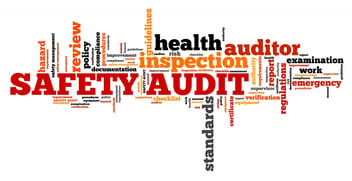Document Management: The Key to Regulatory Compliance in KSA
To navigate this complex regulatory landscape successfully, organizations must prioritize effective document management.
"
Document Management: The Key to Regulatory Compliance in KSA
Compliance with Regulations is a critical operational requirement for organizations spanning diverse sectors. This holds particularly true within the Kingdom of Saudi Arabia (KSA), where stringent regulations and evolving standards shape business conduct
To navigate this complex regulatory landscape successfully, organizations must prioritize effective document management. In KSA, as in many parts of the world, regulators expect companies to maintain meticulous records, adhere to specific reporting timelines, and demonstrate transparency in their dealings.
The Regulatory Landscape in KSA
KSA has made significant changes in recent years to enhance its regulatory framework. From safety and environmental regulations to financial and healthcare compliance, businesses in the kingdom face a multitude of requirements. While these regulations aim to ensure the welfare of individuals, protect the environment, and maintain financial stability, they also pose challenges to businesses in terms of document management.
The Role of Document Management
Efficient document management is essential for maintaining regulatory compliance, encompassing tasks like document creation, storage, retrieval, and disposal. Here are key ways in which document management enhances compliance in KSA:
Document Retention: Regulations often specify how long certain types of documents must be retained. A robust document management system ensures that these retention periods are met, helping organizations avoid compliance breaches.
Version Control: Many regulations require organizations to maintain up-to-date records and reports. Document management systems enable version control, ensuring that the latest documents are readily accessible.
Security and Access Control: Protecting sensitive information is paramount. Document management systems provide secure storage and access controls, limiting who can view, edit, or delete critical documents.
Audit Trails: Regulations may mandate that organizations keep detailed records of document changes and access history. Document management systems maintain audit trails for compliance and auditing purposes.
Automated Workflows: To meet regulatory deadlines, organizations can set up automated workflows that trigger document reviews, approvals, and submissions on time.
Reporting Capabilities: Compliance often involves generating and submitting reports to regulatory authorities. Document management systems facilitate report generation and provide tools for accurate and timely submissions.
Selecting the Right Document Management Solution
Choosing the right document management solution is pivotal to achieving regulatory compliance. Modern document management systems offer a range of features designed to streamline document-related processes, enhance security, and ensure compliance with KSA's regulatory framework.
Organizations should consider factors such as scalability, ease of use, integration capabilities, and the ability to adapt to evolving regulations when selecting a document management solution. It is also crucial to ensure that the chosen system aligns with industry-specific requirements and can accommodate the unique needs of the organization.
Conclusion
Effective document management is far more than a mere convenience—it emerges as an essential strategic imperative. Organizations that place a strong emphasis on robust document management systems not only fulfill their compliance obligations but also secure a competitive edge by streamlining operations, mitigating risks, and enhancing transparency.
As KSA continues to evolve its regulations, businesses that embrace advanced document management solutions will find themselves better positioned to navigate the complexities, ensure compliance, and thrive in the Kingdom's dynamic business environment.


